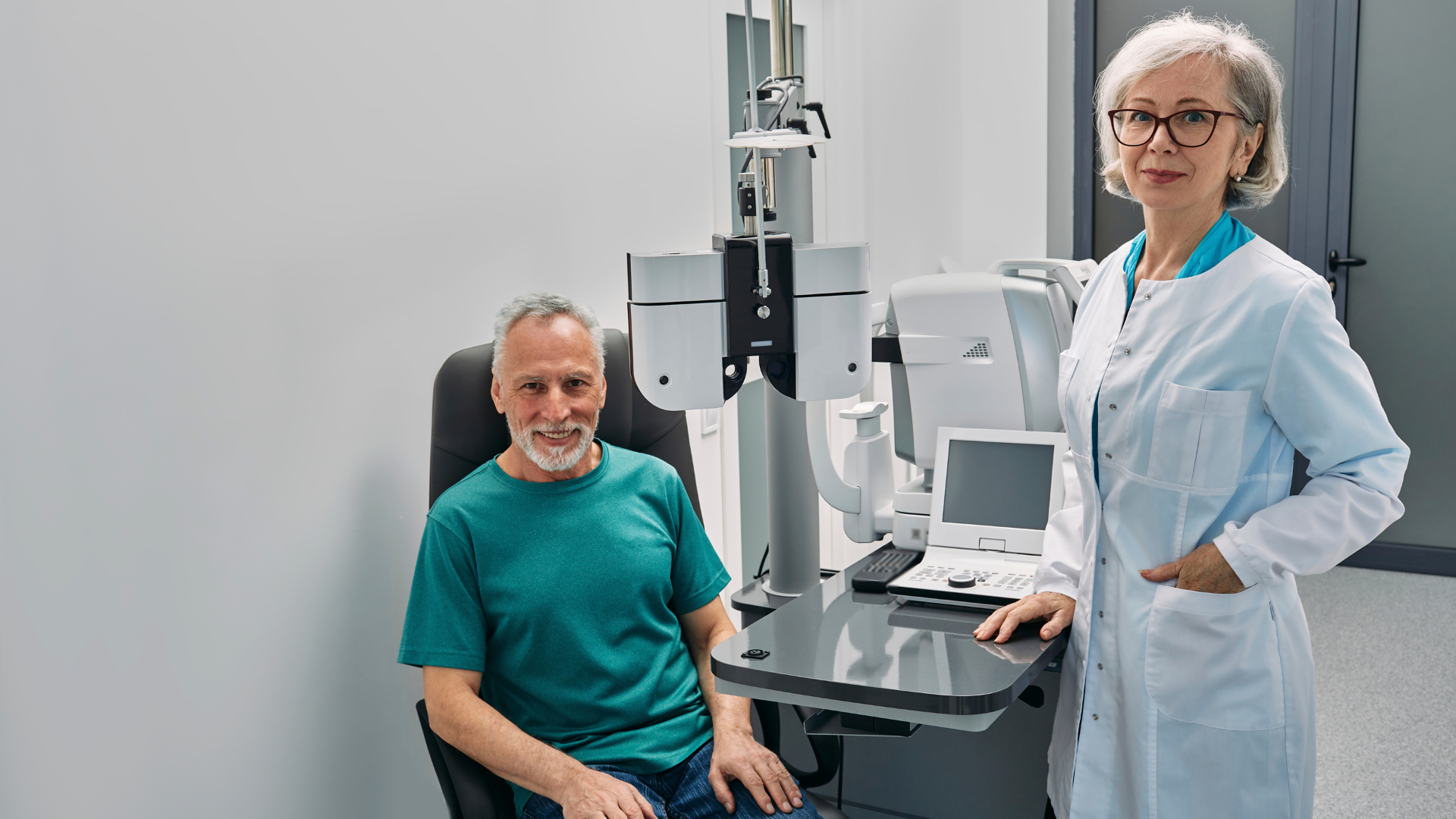
Questions to Ask Your Optometrist with AMD
Age-related macular degeneration (AMD) is a common eye condition that primarily affects individuals over the age of 60. It is essential to be proactive in managing your eye health when living with AMD. Regular check-ups with your optometrist are crucial for monitoring the condition's progression and discussing treatment options. To make the most out of your appointments, it's important to come prepared with questions that can help you understand your condition, manage it effectively and ensure you're receiving the best care possible. In this article, we provide a comprehensive list of questions to ask your optometrist during your AMD-related appointments.
Understanding Your AMD Diagnosis
What type of AMD do I have?
There are two main types of AMD: dry AMD and wet AMD. Understanding your specific type is essential for determining the most appropriate treatment and management plan.
What is the current status of my AMD?
Ask your optometrist about the stage and progression of your AMD. You may have very early signs of the condition or it may have progressed further. Understanding whether your condition is stable, improving or worsening is really important, as the action you can take will differ.
What are the risk factors for AMD progression?
Discuss factors that can impact the advancement of AMD, such as smoking, diet, genetics and sunlight exposure. Your optometrist will be able to offer practical advice on ways of adapting your lifestyle to help slow the progression.
Treatment and Management
What treatment options are available for my AMD?
Explore the available treatments for your specific type of AMD, including medications, laser therapy and dietary supplements. Your options will depend on whether you have wet or dry AMD and the level of progression, but your optometrist will be able to offer advice. If you need further clarification, OcuPlan offers an ‘ask a consultant’ feature in our Free Service.
Some optometrists may not be able to provide specific treatment advice. This is often provided by a consultant ophthalmologist. It is clinically advised that those living with a long-term eye condition are monitored by a consultant to prescribe treatments and review the treatment plan. To find out how OcuPlan can help, click here
Can you explain the potential side effects of AMD treatments?
Some AMD treatments will have side effects. It's important to know the potential side effects and risks associated with any medications or procedures you might undergo.
Do you recommend any lifestyle changes?
Discuss the impact of diet, exercise and other lifestyle modifications on managing AMD. Your optometrist can provide guidance on maintaining a healthy lifestyle and explain how certain changes can help to slow the progression of AMD.
Can I monitor my AMD at home?
Your optometrist will offer advice on how you can monitor your condition between appointments. This is very important. If you see a change in your vision, you must consult your optician as quickly as possible. The best way to home monitor is through an Amsler grid. You can learn more here.
Low Vision Aids
Can low vision aids help me manage my AMD?
Low vision aids, such as magnifiers, specialised glasses or electronic devices, can enhance your daily activities. Ask about their potential benefits and which aids suit your condition most.
Are there any assistive technologies that you recommend?
For individuals with AMD, devices and assistive technologies can be powerful allies, providing access to a world of possibilities. Your optometrist can suggest specific devices or strategies to help with everyday tasks.
Support and Resources
Do you have information on support groups or resources for individuals with AMD?
Connecting with others who have AMD can provide emotional support and valuable insights into living with the condition. Charities such as the Macular Society offer brilliant free services such as local support groups.
Where can I access educational materials and additional information on AMD?
Your optometrist can guide you to reliable sources of information about AMD, its management and the latest advancements. OcuPlan also offers a Free Service that provides regular free advice as well as our ‘ask a consultant’ service.
Future Outlook
What is the long-term prognosis for my AMD?
Understanding the expected progression of your condition and its potential impact on your vision is important for planning your future.
Are there any potential advancements or clinical trials related to AMD?
Stay informed about ongoing research and potential innovations in AMD treatment and management. Your optician may be able to advise on new AMD treatments and technologies.
Questions for Clarification
Can you explain that in simpler terms?
Sometimes it can be difficult to understand and comprehend medical information. If you find any information or recommendations confusing, don't hesitate to ask for a simpler explanation.
Is there anything else I should know or consider about my AMD?
Give your optometrist the opportunity to provide additional insights or advice regarding your condition.
Regular communication with your optometrist is essential for effectively managing AMD and ensuring the best possible care for your eye health. By asking the right questions and seeking clarification, you can be better informed and proactive in your journey with age-related macular degeneration, which can help to make lifestyle changes that help to reduce the risk of sight loss.
Through OcuPlan, we help to minimise the risk of sight loss by offering shared care. You choose your local optician and consultant and together they provide a treatment plan tailored to you and your condition. No delays or cancellations and manageable monthly payments. You can learn more here
About OcuPlan
OcuPlan offers the gold standard of clinical care for patients with long-term eye conditions to help minimise the risk of sight loss.